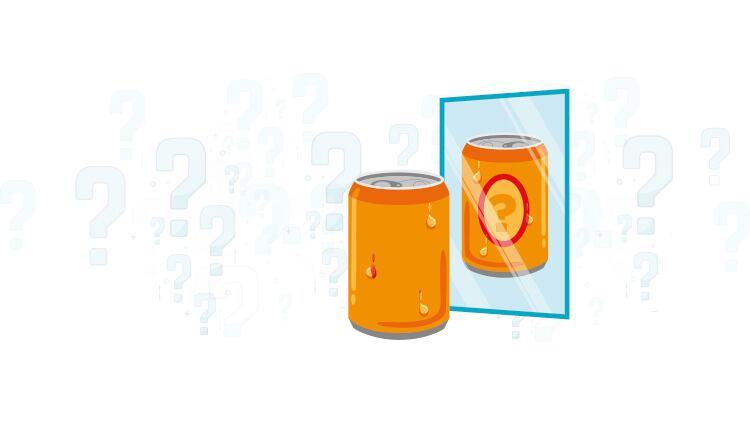Health and nutrition expert Royal DSM published The Craft Revolution in Brewing report, which surveyed 3,300 consumers across seven countries in Europe and the US, and findings have shown that three quarters (75%) of respondents cited taste above everything else, including price, when they make their purchase decision on beer.
About two thirds of consumers said they were attracted to craft beer because they see it as a premium, high-quality product.
The same number said they felt drinking craft beer was ‘more special’ than drinking regular beer. Quality, therefore, is becoming the byword of the brewing industry today, according to DSM.
The report stated that in the past two years, just under half of the craft drinkers surveyed said they now drink more craft beer.
Just 6% of this group are drinking less craft beer. The greatest increase took place in those aged 18 to 30. This rise is eating into regular beer consumption with 56% of respondents saying they drink less regular beer now.
Craft drinkers value ‘locally brewed’ beer but this is less about where it originates from and more about how the product is made, the report revealed.
However, for all those years, the sector hasn’t managed to come up with a clear working definition of craft beer.
Still no firm criteria
In the UK, there is still no firm criteria for exactly what makes a beer ‘craft’, but experts have worked out a rough set of guidelines, which ‘craft’ beer could be based on.
Data from CGA has outlined a loose framework that it uses to define ‘craft’. Firstly, the price point of a product is taken into account. Craft beers are traditionally made by smaller brewers who aren’t able to enjoy the luxury from economies of scale of production and distribution networks.
Consumers expect this and are prepared to pay a premium for a craft product, therefore, CGA’s first criteria was a high average price point.
The data analysts segment the market by outlet style and the quality of the outlet within that style. As a smaller, more niche product, craft beers are typically distributed in higher quality outlets, so it looks for brands with more than three quarters (75%) of their distribution within ‘gold’ and ‘platinum’ outlets (‘good’, ‘better’ and ‘best’ outlets, based on the amount they sell and which type of product – eg, premium, etc).
Craft beer brands are also naturally smaller and harder to get hold of than the larger, mainstream brands making size of distribution another element in the definition of craft.
The company also looks at packaged dispense type, specifically looking for beer distributed in brown bottles or cans but does not differentiate between cask and keg beer.
Lastly, CGA believes the modern consumer is unlikely to be aware of whether a multinational company owns a particular brand or not.
Therefore, it does not exclude brands owned by a multinational within its definition of craft (for example, Goose Island – now owned by AB InBev – and Blue Moon – owned by Molson Coors).
It uses all the above criteria to create a shortlist of brands and, from there, it assesses each before asking if the beer differs significantly from the styles available to mainstream consumers in the past decade.
It also looks at the style of beer and if a brand is British or American and if the branding is modern and inclusive.
However, for Continental beers or brands that have been revived, this rule is relaxed. CGA said that with greater awareness of the diversity in beer, there is renewed interest from the public in classic beers (particularly those from places like Belgium) where updated branding may not be appropriate. It also looks at whether the brand has been historically available in Britain.
Different situation in the US
While this set of guidelines is based on the UK market, across The Pond in America, the Brewer’s Association (BA) has a very clear definition of craft.
It said American craft brewers have to be small and independent. It defines small as a producer that has an annual production of up to 6m barrels of beer (approximately 3% of US annual beer sales).
Beer production is attributed to a brewer according to the rules of alternating proprietorships.
It states that to be independent, less than 25% of the craft brewery is owned or controlled (or equivalent economic interest) by a beverage alcohol industry member, which is not itself a craft brewer.
The brewer should have an alcohol and tobacco tax and trade bureau (TTB) brewer's notice and make beer.
The BA also outlined some concepts related to craft, including that craft brewers are small brewers and the hallmark of craft beer and craft brewers is innovation.
It added that craft brewers interpret historic styles with unique twists and develop new styles that have no precedent.
It said craft beer is generally made with traditional ingredients like malted barley but interesting and sometimes non-traditional ingredients are often added for distinctiveness.
Craft brewers tend to be very involved in their communities through philanthropy, product donations, volunteering and sponsorship of events.
They also have a distinctive, individualistic approach to connecting with their customers.
In addition it stated that craft brewers maintain integrity by what they brew and their general independence and are free from a substantial interest by a non-craft brewer.
Lastly, the BA stated that the majority of Americans live within 10 miles of a craft brewer. While the word ‘craft’ is popular with drinkers, brewers themselves aren’t too keen on the word.
A ‘rubbish, meaningless term’
Although it defines itself as the ‘first craft beer bar in Britain’, North Bar/North Brewing Co is also no fan of the word.
Co-director Christian Townsley said: “It’s a rubbish, meaningless term that we did try to avoid for many years.
“When we got into this business we talked about ‘speciality beer’. I don’t think that helps either really. Now, the word ‘craft’ should help drinkers understand the growing number of products being made by smaller independent
breweries who generally adopt an uncompromising approach to quality ingredients and careful, considered production.
“We flirt with the word, but we don’t use it aggressively because it never had a proper definition and now, whatever loose meaning it had is being diluted and bastardised.
“It doesn’t guarantee small independent brewers. Marketers of big brands adopt the phrase to piggy back on the wave of modern beer-maker’s coat tails – call something ‘craft’, package it with a slightly left of centre design and hope consumers pick it up thinking they have discovered something special.”
No definition ‘is good’
Fellow Leeds-based brewery Northern Monk echoed Townsley’s comments and said the fact there is no set definition is a good thing.
Head brewer Brian Dickson said: “I wouldn’t be prepared to define the term ‘craft’. It’s completely subjective, it has a different meaning to everyone.
“There’s a reason why it doesn’t already have a clear-cut definition, despite there being more than 2,000 breweries in the UK.
“There are no strict rules or guidelines in terms of what ‘craft’ is and that’s part of the magic of it, we are not tied down to regulations about what we ‘should’ be.
“It relies entirely on an individual’s interpretation of the word. For us, producing a ‘craft’ product is about creating something with honesty, integrity and passion.
“It allows us to be experimental because we are not constrained by the rules of big beer producers, which means we are constantly striving to improve, instead of settling to a standard.
“This, ultimately, means more great beer on the shelves because breweries are allowed to play in an industry where they are not being pressured to conform to a certain definition.
“That is why I don’t think we should be obsessing over defining the term – the industry has thrived pretty well without one so far.”
The fact is craft appears to be important to drinkers, so operators should ensure they are marketing it in the right way.



